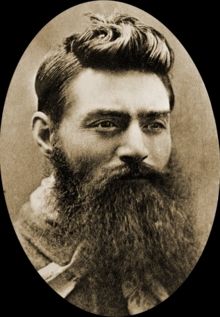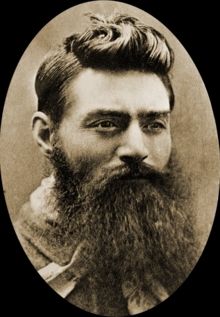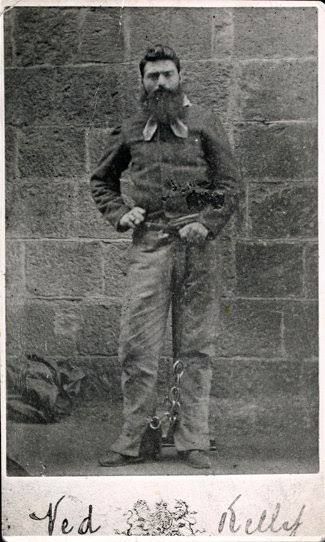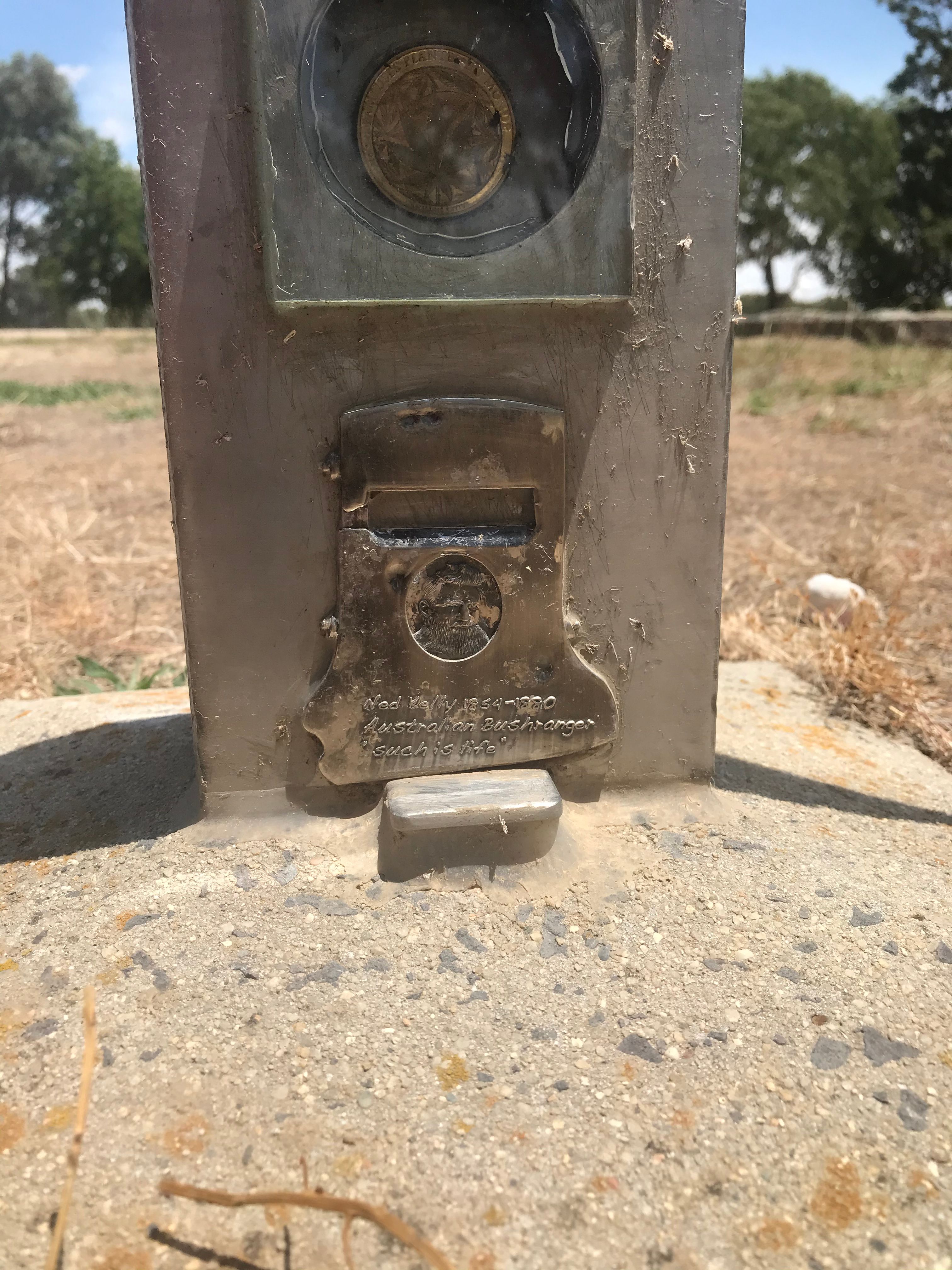Ned's father, John Kelly, was frequently in trouble with the law, facing charges of theft and horse stealing. His brushes with authorities likely influenced Ned's perception of law enforcement and authority from an early age.
The turning point in Ned Kelly's life occurred in 1878 during the Stringybark Creek incident. Ned and his gang, including his brother Dan Kelly and associates Joe Byrne and Steve Hart, clashed with police, resulting in the deaths of three officers. This incident led to the Kelly Gang being declared outlaws, with a substantial reward placed on Ned's head. The Stringybark Creek murders elevated the Kelly Gang's notoriety, and they went on the run, engaging in a series of robberies and clashes with law enforcement. Ned, charismatic and resourceful, became a symbol of resistance against perceived injustice, especially among the rural poor.
Ned Kelly's iconic homemade armour, crafted from plough parts, became a symbol of defiance. In June 1880, the Kelly Gang orchestrated the infamous siege at Glenrowan. Wearing his armor, Ned engaged in a standoff with police. The siege ended with the death of three gang members, including Dan Kelly and Steve Hart, while Ned was captured after sustaining multiple gunshot wounds.
Following the Glenrowan siege, Ned Kelly faced a highly publicized trial in Melbourne. Despite public sympathy, he was found guilty of murder and sentenced to death by hanging. On November 11, 1880, Ned Kelly was executed at the Old Melbourne Gaol. His final words, "Such is life," have become iconic and are often quoted in Australian popular culture.
Ned Kelly was originally buried at the Old Melbourne Gaol in the "Old Men's Yard," which was just inside the walls of the gaol. In 1929, the gaol was closed for partial demolition, it was here where the bodies of those buried there were exhumed and reinterred in a mass grave at Pentridge Prison, however spectators and workers took bits of bones from the graves during the exhumations, this is believed to also included Ned Kelly's skull which remains missing to this day.
In 2008, the Victorian Government announced plans to exhume and positively identify Ned Kelly's remains. The motivation behind this decision was to put an end to the speculation surrounding the location of his grave and to allow for a proper burial. The exhumation of the Pentridge Prison mass graves was conducted in 2009, Ned Kelly's remains were positively identified in 2011. In 2012, the Victorian Government issued a licence for Kelly's remains to be returned to the Kelly family, who made plans for his final burial.
Ned Kelly's relatives granted his final wish and buried his remains in consecrated ground at Greta Cemetery on the 20th January 2013. The final burial was attended by Kelly family members, and a simple wooden cross marked the spot.
Ned's father, John Kelly, was frequently in trouble with the law, facing charges of theft and horse stealing. His brushes with authorities likely influenced Ned's perception of law enforcement and authority from an early age.
The turning point in Ned Kelly's life occurred in 1878 during the Stringybark Creek incident. Ned and his gang, including his brother Dan Kelly and associates Joe Byrne and Steve Hart, clashed with police, resulting in the deaths of three officers. This incident led to the Kelly Gang being declared outlaws, with a substantial reward placed on Ned's head. The Stringybark Creek murders elevated the Kelly Gang's notoriety, and they went on the run, engaging in a series of robberies and clashes with law enforcement. Ned, charismatic and resourceful, became a symbol of resistance against perceived injustice, especially among the rural poor.
Ned Kelly's iconic homemade armour, crafted from plough parts, became a symbol of defiance. In June 1880, the Kelly Gang orchestrated the infamous siege at Glenrowan. Wearing his armor, Ned engaged in a standoff with police. The siege ended with the death of three gang members, including Dan Kelly and Steve Hart, while Ned was captured after sustaining multiple gunshot wounds.
Following the Glenrowan siege, Ned Kelly faced a highly publicized trial in Melbourne. Despite public sympathy, he was found guilty of murder and sentenced to death by hanging. On November 11, 1880, Ned Kelly was executed at the Old Melbourne Gaol. His final words, "Such is life," have become iconic and are often quoted in Australian popular culture.
Ned Kelly was originally buried at the Old Melbourne Gaol in the "Old Men's Yard," which was just inside the walls of the gaol. In 1929, the gaol was closed for partial demolition, it was here where the bodies of those buried there were exhumed and reinterred in a mass grave at Pentridge Prison, however spectators and workers took bits of bones from the graves during the exhumations, this is believed to also included Ned Kelly's skull which remains missing to this day.
In 2008, the Victorian Government announced plans to exhume and positively identify Ned Kelly's remains. The motivation behind this decision was to put an end to the speculation surrounding the location of his grave and to allow for a proper burial. The exhumation of the Pentridge Prison mass graves was conducted in 2009, Ned Kelly's remains were positively identified in 2011. In 2012, the Victorian Government issued a licence for Kelly's remains to be returned to the Kelly family, who made plans for his final burial.
Ned Kelly's relatives granted his final wish and buried his remains in consecrated ground at Greta Cemetery on the 20th January 2013. The final burial was attended by Kelly family members, and a simple wooden cross marked the spot.
Bio by: "Viscount Melbourne"
Family Members
Advertisement
See more Kelly memorials in:
Records on Ancestry
Sponsored by Ancestry
Advertisement
















